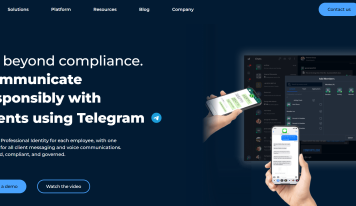Updated with modified quote from Hunter Newby January 28, 2011, 8:15 AM EST
Updated again January 28, 2011, 4:37 PM EST for grammatical reasons
—
My views have shifted on net neutrality over the years – to the point where I firmly believe that carriers have the right to recoup investments they make in networks. At the same time, I understand fully that IP communications is dependent on traffic not being impeded by a carrier looking to promote an alternative service. Having said that, there are a number of peering points located around the US – only a few places where fiber exists in enough quantity to allow massive interconnections between hundreds of carriers, enterprises and web 2.0 companies such as Google and Facebook.
Terremark owns one facility – the NAP of the Americas in Miami. Telx owns another at 60 Hudson in New York, and CoreSite at One Wilshire in Los Angeles. These are perhaps the three most prominent locations in the US “carrier hotel” market. At industry gatherings I have often asked the people involved in running these facilities about the possibility of Verizon or AT&T purchasing one or more companies in the space. The response has always been that it would be bad news for the communications market.
You see, carriers interconnect with carriers in these locations free of interference from incumbent phone companies and in many cases they come to these carrier hotels to get away from the largest carriers. In fact, Google, Vonage, Facebook and others have interconnections in these facilities precisely for these reasons.
Now that Verizon has purchased Terremark, the market has shifted dramatically as Miami’s carrier neutral mass of fiber and interconnections are now under control of a single carrier. The NAP in fact is referred to as the gateway to Latin America. Verizon now controls it all. Lock, stock and barrel.
When the news broke, I immediately reached out to Hunter Newby who was at one point synonymous with Telx and helped build that carrier hotel from nothing into a major industry force. He is now running a start-up called Allied Fiber whose goal is to provide dark fiber to companies in the US along hundreds of miles of railroad property.
This is what he had to say about the deal:
The idea of VZ owning the NAP in Miami has deep, far-reaching implications. The reality of it is even more complicated. That site is one of the most important “carrier-neutral” collocation facilities in the US and the world. Now it is owned by a carrier – one of the largest in the world. What impact will that have on the tenants, the service level, the pricing, and the control? Time will tell.
Several years ago I quoted Mark Fedor, who was at the time CTO of SunRocket and former senior vice president of engineering for PSInet, in an article about IP peering. We discussed the CIX, the first commercial Internet exchange, which was located in the San Francisco bay area, and where he was the first technical Director.
He said that the ISP’s went into their own room in a different building to create a neutral environment and get away from the Bell CO and to get away from the “Bell attitude”.
Now Bell has acquired one of the largest neutral IX points in the US.
He continued in a further e-mail by saying:
Interestingly, net neutrality is “Network” neutrality, not “Internet” neutrality. This deal proves that.
It is all about physical networks. Whoever owns the physical makes the rules. Think about that when it comes to the major carrier hotels and meet me rooms in the US. Who has been making the rules for the last 10 years? Not carriers. Not the FCC. And that’s one of the reasons why the carrier neutral sites have thrived. They were around, self-governed as open interconnection facilities long before the notion of Net Neutrality.
Also, Verizon apparently took notice of Google buying 111 8th…
Next week at ITEXPO in Miami, Fla., this discussion is going to be taken to the next level at one of the conferences collocated with ITEXPO, VIPeering – an event focusing on voice peering or the carrier neutral concept of allowing IP communications providers to interconnect directly with one another. Will this Verizon news cause major problems for the peering market? Will Google, AT&T and Verizon now get in a bidding war to pick up other carrier neutral facilities? There will likely also be discussion of this transaction at the Regulatory 2.0 event next week which counts Google and AT&T as sponsors.
This is certain to also come up during my keynote discussion with former FCC Chairman Kevin Martin next week at ITEXPO. I wonder what his thoughts will be and what the industry will think about this deal. More importantly I wonder if the nuances of this transaction will get lost on politicians who look for pro net neutrality sound bite opportunities. Will Senator Al Franken tackle this issue for example? What about all the other special interest groups who want to guarantee net neutrality? What will the FCC do for example – do they have any power here? Will the Obama administration realize this move may be a threat to their policy of net neutrality? What will the DoJ say? Time will tell.
One transaction can have tremendous ramifications and the entire broadband market may have been shaken up with this news. How will it deal with this new reality and will this move radically alter how Google, Facebook and Microsoft get to their customers online?
I just can’t wait for ITEXPO to hear what the industry thinks.





